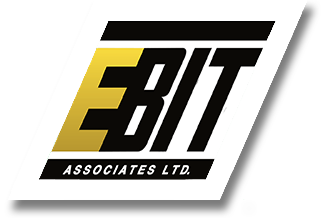Navigating the Changing Business Landscape: Key Principles for Business Success
As we step further into the 21st century, the landscape of business success is evolving at an unprecedented pace. While new challenges continually emerge, the foundational principles of achieving business success remain largely unchanged. The question is, how well are you preparing for both the new and enduring demands of entrepreneurship? Let’s explore some fundamental standards to abide by.
Are You Embracing Technology?
The digital age has fundamentally transformed how businesses operate. Today’s entrepreneurs must leverage technology to engage customers, streamline operations, and scale their businesses efficiently. Traditional advertising methods like print, radio, and television are being replaced by digital platforms, which offer targeted marketing, real-time data analytics, and enhanced customer interaction—key factors in achieving business success.
From artificial intelligence (AI) and automation to cloud computing and e-commerce, technological advancements are reshaping industries across the board. For instance, companies utilizing AI-driven chatbots can provide 24/7 customer service, improving user experience and reducing overhead costs. Likewise, businesses that harness big data analytics can make informed decisions that enhance productivity and profitability, both of which are critical for business success.
Another crucial aspect of embracing technology is the rise of digital payment systems and blockchain. Businesses that integrate digital payment solutions such as Apple Pay, Google Wallet, and cryptocurrency transactions offer greater convenience to their customers while also improving security. Blockchain technology, in particular, is revolutionizing supply chain management, ensuring transparency, and reducing fraud, all of which contribute to long-term business success.
Remote work and cloud computing have also redefined the modern workplace. The COVID-19 pandemic accelerated the shift towards remote work, and companies that adopted cloud-based collaboration tools such as Zoom, Slack, and Microsoft Teams have found new ways to maintain productivity and teamwork. The ability to work from anywhere not only boosts efficiency but also expands the talent pool for businesses looking to hire the best professionals, regardless of location.
Cybersecurity is another area that businesses cannot afford to overlook. With cyber threats increasing, implementing strong security protocols, such as multi-factor authentication, data encryption, and regular security audits, is essential to protect sensitive business and customer data—key components in sustaining business success.
Ignoring technological advancements is no longer an option. Those who fail to adapt will inevitably fall behind their competitors. Successful businesses are those that proactively integrate technology into their operations and continuously innovate to stay ahead, ensuring ongoing business success.
Can You Adapt?
The business world is in a constant state of flux. Consumer preferences change, new competitors emerge, and technological advancements disrupt industries. The ability to adapt quickly is what separates thriving businesses from those that fade into obscurity. Adaptability is a fundamental trait of business success.
Adaptability requires businesses to continuously assess market trends, customer demands, and industry shifts. Companies that rigidly adhere to outdated models risk losing relevance in an evolving landscape. Businesses that succeed in the long run are those that embrace change rather than resist it, positioning themselves for sustained business success.
A notable example of a company that failed to adapt is Apple in its early years. Initially, Apple had the opportunity to license its Mac operating system, which could have positioned it as the dominant player in the personal computer market. Instead, Microsoft seized this opportunity, ultimately becoming the leader in software solutions. Apple eventually recovered, but this early misstep demonstrates the importance of recognizing and capitalizing on market trends for business success.
On the other hand, companies like Netflix provide an excellent example of adaptability. Originally a DVD rental service, Netflix pivoted to a streaming model just as digital media consumption started gaining traction. This shift allowed Netflix to dominate the entertainment industry and stay ahead of traditional cable and rental businesses that failed to evolve, reinforcing its business success.
To remain adaptable, businesses should foster a culture of innovation, encouraging employees to seek new ideas and challenge conventional methods. Regularly evaluating and updating business strategies ensures that companies remain competitive, no matter how industries shift. Flexibility in operations, customer engagement, and product development is essential for long-term business success.
Do You Maintain a Clear Focus?
A strong and successful business is built on a clear sense of purpose. While diversifying and exploring new opportunities can be beneficial, losing sight of your core strengths can dilute your brand and weaken your market position, ultimately jeopardizing business success.
Consider businesses that have maintained their focus over time. Companies like Nike have remained dedicated to innovation in athletic footwear and apparel, reinforcing their brand identity and maintaining a loyal customer base. In contrast, businesses that stray too far from their niche often struggle to maintain relevance and profitability, undermining their business success.
To maintain a clear focus, businesses must define their mission, vision, and values early on and ensure that all strategies align with these core principles. Leaders should regularly assess whether new ventures or expansions align with their company’s primary strengths and market positioning. Consistency in branding, messaging, and service quality further strengthens a business’s identity and fosters trust among customers, solidifying business success.
Focusing on what you do best also helps in resource allocation. Spreading efforts too thin across multiple areas may lead to inefficiencies and decreased performance. By concentrating on core strengths, businesses can refine their expertise, improve product or service quality, and build a competitive edge in their industry—ensuring business success.
Have You Established a Strong Plan?
A well-structured business plan serves as a roadmap for business success. It provides direction, sets measurable goals, and helps business owners anticipate potential challenges.
A robust business plan should include:
- Market Research: Understanding industry trends, customer needs, and competitor strategies.
- Financial Planning: Budgeting, revenue projections, and funding strategies.
- Operational Strategy: Efficient processes, supply chain management, and team development.
- Marketing and Branding: Target audience identification, advertising strategies, and customer engagement.
- Risk Management: Identifying potential risks and establishing contingency plans.
By regularly revisiting and updating your business plan, you can stay prepared for market shifts and make strategic adjustments that keep your business resilient and competitive—key elements of business success.
Are You Preparing for the Next Phase?
Knowing when and how to exit a business is just as crucial as starting one. Many entrepreneurs make the mistake of waiting until their business is in decline before considering an exit strategy. However, the most successful business exits occur when the market is strong, and the company is performing well, securing business success even in transition.
Exiting on your own terms, rather than being forced to sell due to declining profitability, allows for a smoother transition and a more rewarding financial outcome. Whether you plan to sell, merge, or transition leadership, having an exit strategy ensures that your legacy and financial future remain secure, marking the final stage of your business success.
An effective exit strategy involves several key considerations:
- Business Valuation: A thorough valuation ensures you understand your business’s worth. Methods such as earnings multiples, asset-based valuation, and discounted cash flow analysis can help determine a fair market price. Professional valuation experts can assist in accurately assessing your business’s financial health and growth potential.
- Succession Planning: If transitioning leadership internally, developing a structured plan ensures continuity. Training key personnel, defining roles, and setting a clear timeline will help minimize disruptions and ensure a seamless handover to the next generation or management team.
- Strategic Mergers or Acquisitions: Merging with or being acquired by another company can offer significant financial and operational advantages. Aligning with a strategic partner may provide access to new markets, expanded resources, and increased brand recognition.
- Legal and Financial Preparation: Preparing for an exit requires expert legal and financial guidance. Reviewing contracts, ensuring compliance with regulations, and addressing tax implications will facilitate a smoother transition. Engaging business brokers, attorneys, and accountants early in the process will help maximize the value of the transaction.
Exiting on your own terms, rather than being forced to sell due to declining profitability, allows for a smoother transition and a more rewarding financial outcome. Whether you plan to sell, merge, or transition leadership, having an exit strategy ensures that your legacy and financial future remain secure.
Conclusion: Setting Yourself Up for Long-Term Business Success
The world of entrepreneurship is full of challenges and uncertainties, but by adhering to key business principles, you can position yourself for long-term business success. Embracing technology, staying adaptable, maintaining focus, and planning strategically are essential components of a thriving business.
Finally, recognizing when and how to exit gracefully will be the ultimate testament to your business acumen. Whether you’re just starting or looking to scale your business, implementing these core strategies will help you navigate the ever-evolving business landscape and achieve sustainable success.


